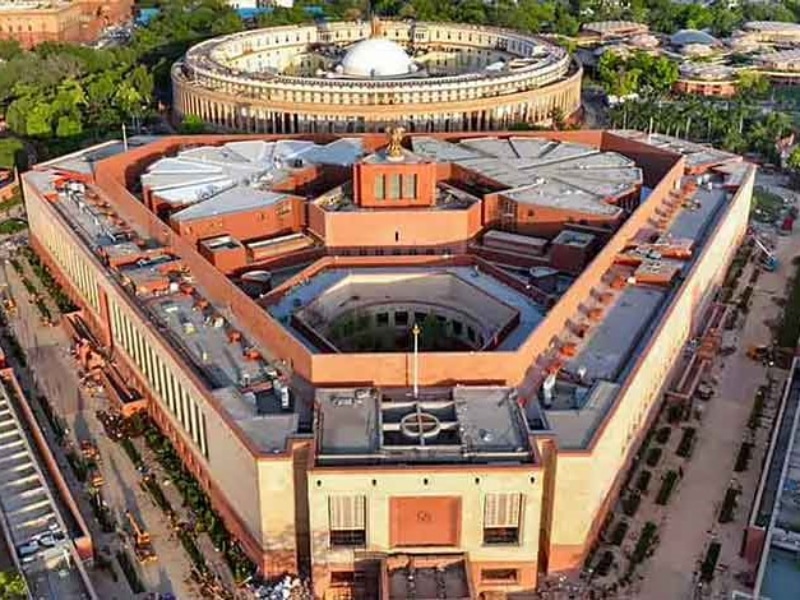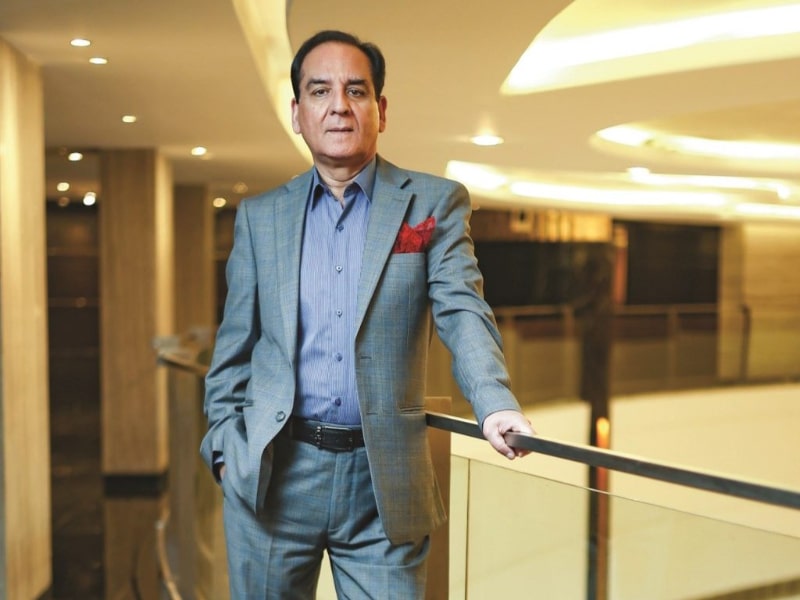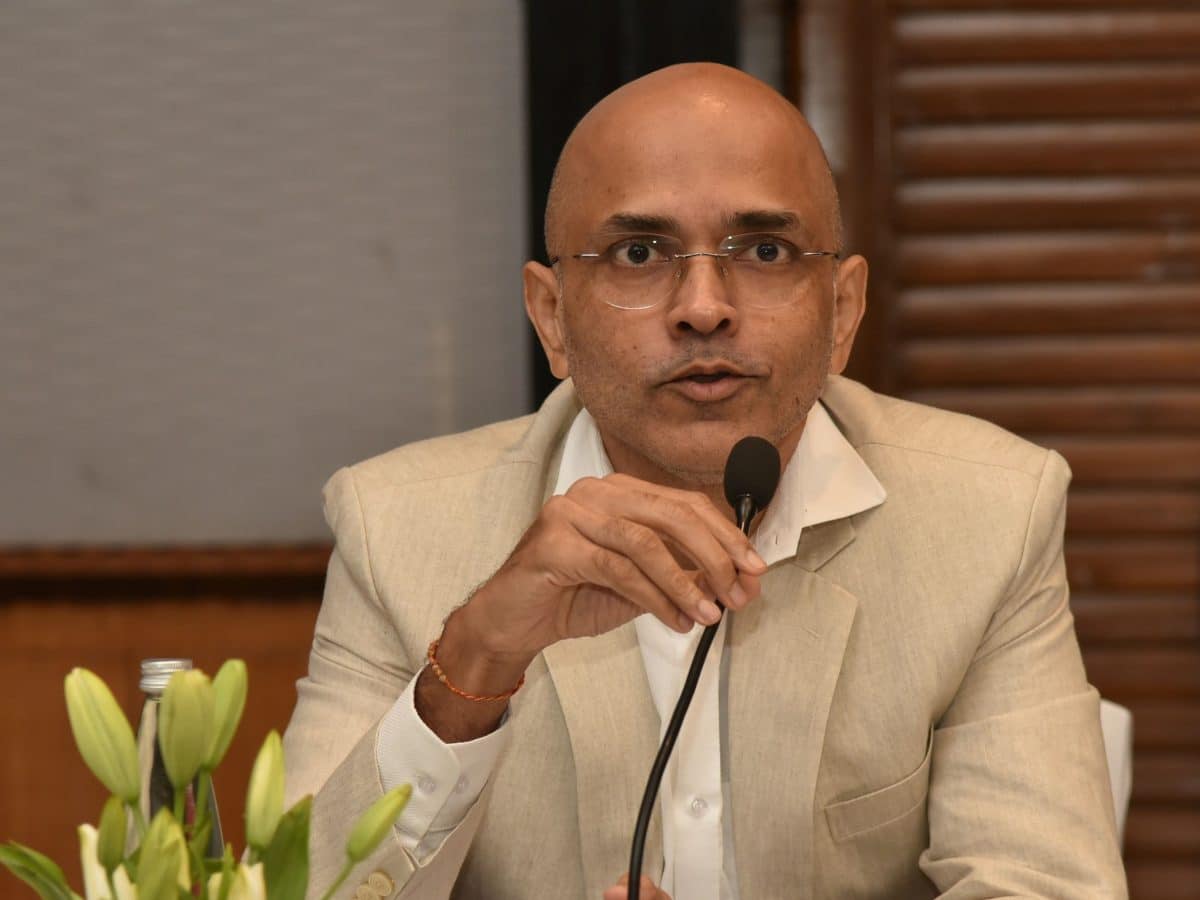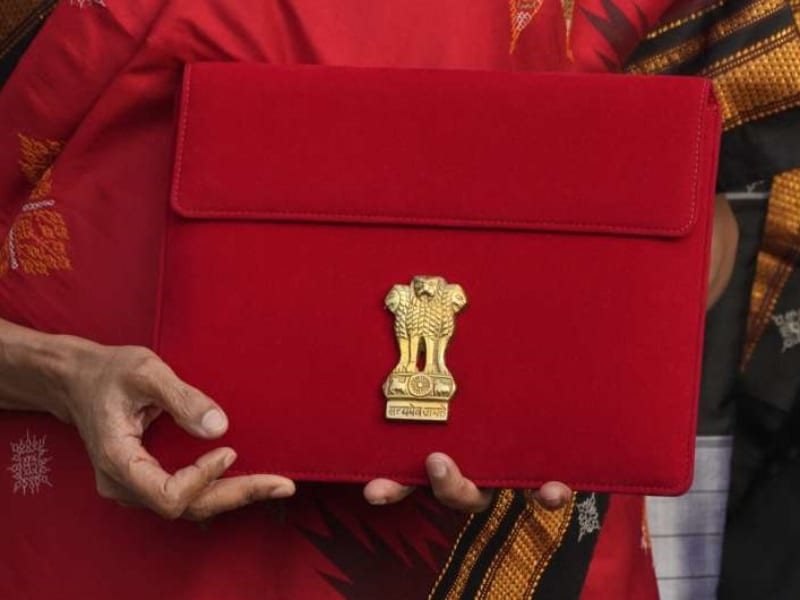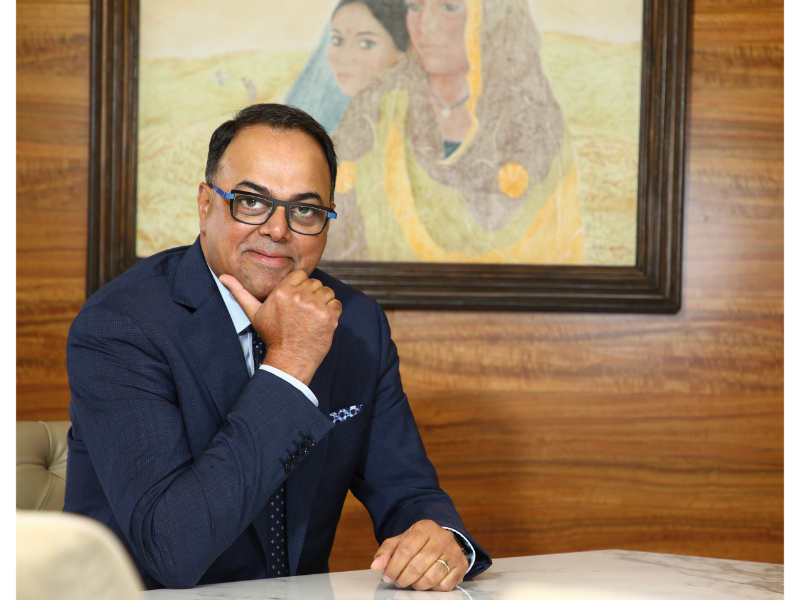The Union Budget 24-25 was a mixed bag for the hospitality industry. While overall, the tone was one of positivity, the measures that will positively impact the industry are:
- Allocation of ₹1.48 lakh crore for education, employment, and skilling, including training 20 lakh youth and upgrading 1,000 institutes.
- A new income tax regime with revised slabs
- Converting 40,000 rail bogies to Vande Bharat coaches and expanding key rail corridors
- Development of Vishnupad temple at Gaya, Mahabodhi temple in Bodhgaya, the Kashi Vishwanath corridor, the Brahmkunda of Rajgir, and Nalanda
- Abolishment of the Angel Tax, among others.
While the hoteliers are hopeful of the growth of the industry, they are disappointed as their long-pending demand of granting industry status to the hospitality sector and rationalising GST has not been met. Below are the reactions of the industry’s head honchos on the budget.
Lauding the government’s allocation of ₹1.48 lakh crore for education, employment, and skilling, Kunal Vasudeva, Co-Founder and Managing Director of the Indian School of Hospitality, said, “The government’s allocation of ₹1.48 lakh crore for education, employment, and skilling, including training 20 lakh youth and upgrading 1,000 institutes, is a significant step forward. For those pursuing vocational routes, this is a major win. It will help people develop practical skills and excel in their fields, bringing more youth into the formal economy. Additionally, with manufacturing bases in or near districts, there’s less need to migrate to cities, reducing mobility. Such initiatives are crucial for hyper-local job creation and boosting the manufacturing sector, driving India towards becoming a $10 trillion economy in the next 7–10 years.
“The Union Budget’s provision for ₹10 lakh education loans with interest relief for higher education in India is a big win for those pursuing the academic route. Given our low gross enrollment ratio, these loans will make quality education more accessible, allowing students to choose institutions of merit. This embodies ‘Sabka Saath, Sabka Vikas,’ fostering inclusivity from the ground up. We can cultivate a skilled, competent, and agile-thinking workforce by enhancing local education opportunities and increasing our GER from 26% to at least 40% in the next five years. This workforce is essential for job creation, manufacturing growth, and meeting the workforce needs across various sectors, supporting ‘Made in India for India and Made in India for the World,’ and propelling us towards becoming a $10 trillion economy in the next 7–10 years.”
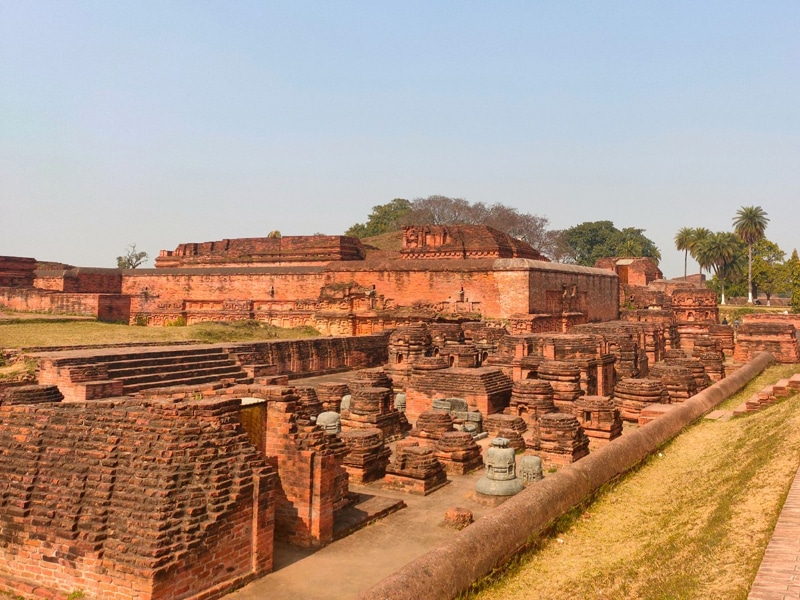
Ankur Maheshwary, Founder of Masti Zone, finds that the budget has laid a strong foundation for sustained economic growth. He said, “Today’s budget presented by Finance Minister Nirmala Sitharaman introduces a new income tax regime with revised slabs, offering relief to taxpayers and boosting disposable incomes. The capital expenditure outlay has increased by 11.1% to ₹11.11 lakh crore, focusing on infrastructure improvements like converting 40,000 rail bogies to Vande Bharat coaches and expanding key rail corridors. The budget also includes withdrawing outstanding direct tax demands up to ₹25,000, benefiting around one crore taxpayers. The exemption limit on capital gains is raised to ₹1.25 lakh per fiscal year, and customs duties on gold, silver, and platinum are reduced. These changes, along with stability in tax rates and increased infrastructure investment, are set to boost the amusement and tourism sectors. However, additional support for digital infrastructure and targeted subsidies could further accelerate growth and innovation. Overall, this budget lays a strong foundation for sustained economic growth.”
Pulkit Arora, Director, CYK Hospitalities, highlighted the effect of the budget on F&B. He said, “Finance Minister Nirmala Sitharaman’s budget is a game changer for tourism. India aims to establish itself as a world-class tourist destination, focusing on places that are of immense spiritual importance, which includes the comprehensive development of Vishnupad temple at Gaya, Mahabodhi temple in Bodhgaya, the Kashi Vishwanath corridor, the Brahmkund of Rajgir, and Nalanda in Bihar.
“The Indian Food and Beverage industry rises significantly each year. As India aims to promote a world-class tourism experience, this would also benefit the F&B industry. The inflow of tourists, international or domestic, would like to experience the taste of local food, which will eventually bring up the demand for local food vendors as well as reputed food brands. This would significantly result in economic and social growth. Also, there will be an increase in local employment opportunities to run successful food businesses and manage tourists in these cities.”
Abhishek Sinha, Co-founder of GoodDot (FMCG and MSME sectors), found the budget to be a welcome step to democratise prosperity in India. He said, “The budget is a progressive one with a focus on agriculture, employment, skilling, manufacturing and services, and infrastructure, amongst others. The above focus will help improve the standard of living of the masses and also help in faster and more inclusive development of the country.
“The allocation of 2.66 lakh crore for rural development and rural infrastructure will positively impact the lives of millions of rural population. This will also help in arresting the growth rate of rural-to-urban migration. INR 2 lakh crore has been allocated to employ over 4.1 crore youth over the next five years. This is a much-needed step for India to gain from its demographic dividend.
“The abolishment of the Angel Tax on all classes of investors in startups is a welcome step and will incentivize investors to fund the Indian startup ecosystem, which stands to gain significantly in the days ahead. Of course, a special package for the plant-based industry would have been welcome considering the critical advantages the space offers in the field of health, agricultural exports, and sustainability.
“Overall, the focus of the budget on promoting the economy in all sectors, with a focus on agriculture and manufacturing, is a welcome step to democratise prosperity in India.”
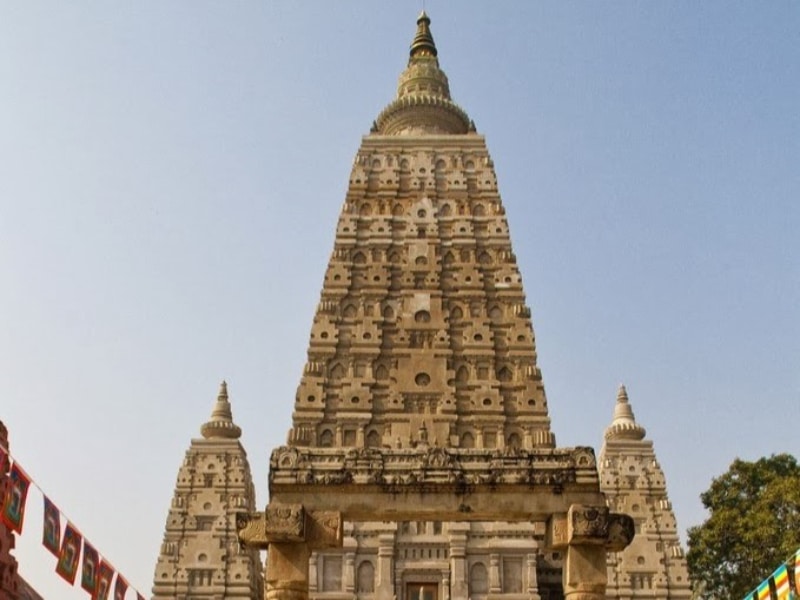
Tushar Parihar, Founder of Kaner Bagh – A Heritage Boutique Hotel (hospitality and MSME sector), highlights that the budget’s focus on infrastructure development will support long-term growth. He said, “The Union Budget 2024 shows a strong commitment to improving the hospitality and tourism industry. The increased allocation towards infrastructure development, particularly in enhancing connectivity and improving tourist destinations, is a significant step forward. These measures will not only boost domestic and international tourism but will also foster economic growth and create employment opportunities. I am optimistic that these initiatives will accelerate the recovery of the hospitality and tourism industry and support long-term growth.”
Udit Bagga, CEO of Bagga Link Group and Founder and MD of Zylo and Zylo by Kakapo, said, “The government is realising the opportunities in F&B and the tourism sector. The food industry is the heart for the growth of any city because everyone needs three meals a day, and if someone is travelling, they explore new food. So, with this budget, we are looking for more opportunities to grow as tourist hubs and market areas.
“One good thing is that the government has changed the tax slabs so that there is more disposable income for salaried people and individuals, so there will be higher spending on consumption. This should benefit our restaurants. We have been waiting long to get tax inputs on GST; currently, we are on the lowest slab, which is good, but we don’t get the tax inputs, so whatever GST we pay is actually an additional cost to us. I feel that the government will review this soon and give us tax inputs and credits. The government has kept us steady, and they have a neutral view of the auto industry. Many incentive schemes should benefit the industry as a whole.”
Animesh Kumar, Head of Commercials at ibis & ibis Styles India, said, “It is highly encouraging to see that the Finance Minister has underscored the vital role of tourism in driving our economy and boosting employment and GDP. The enhanced focus on developing tourism corridors at Vishnupad and Mahabodhi Temple modelled after the successful Kashi Vishwanath Temple initiative, will significantly contribute to tourism growth during the Amrit Kal. Additionally, the government’s support for transforming Nalanda in Bihar into a major tourist destination is a noteworthy step forward. Finance Minister Sitharaman’s announcement of an economic policy framework aimed at ushering in next-generation reforms to drive economic growth further underscores this commitment. The Union Budget’s robust allocation of Rs 11.11 lakh crore for capital expenditure also highlights a strong commitment to infrastructure development.”
Hopeful about the hospitality industry being granted infrastructure status, he added, “However, to fully harness the potential of the hospitality sector and further enhance tourism, it was crucial for the government to consider more lenient tax policies and allocate a substantial budget to elevate hotel standards. We are optimistic that future support from the government will include granting infrastructure status to the hospitality and tourism sectors, which will help us achieve long-awaited progress and drive sustained growth.”

In light of today’s budget announcement, Jugul Thachery, Founder and CEO at HOGR, a food discovery platform, said, “The Union budget introduces promising measures for the startup ecosystem, including the removal of the angel tax, which had earlier posed challenges for emerging businesses. As an early-stage startup founder, this change can be transformative by enabling angel investments, enhancing capacities to innovate, attract talent, and scale our vision, and fostering a vibrant startup ecosystem where bold ideas can flourish and contribute to the economy.
“The government has taken another impactful step to strengthen data governance through the Digital India Mission, which emphasises the collection, processing, and management of data leveraging advanced technology tools. This strategy promises to benefit many industries and open new avenues for data management. By leveraging these technologies, the food discovery segment, for instance, has already witnessed significant traction, particularly in personalising experiences using data. We are now confident that we will see a greater impact in the near future. Overall, we anticipate that these measures will create a more supportive environment for startups and contribute to a dynamic and thriving business landscape.”
Rajesh Magow, Co-Founder and Group CEO of MakeMyTrip, welcomes the initiative to develop iconic spiritual and cultural sites into world-class tourist hotspots. He said, “The government’s continued emphasis on infrastructure development is commendable. Enhanced road infrastructure will bolster the travel and tourism sector. We also welcome the initiatives to develop iconic spiritual and cultural sites into world-class tourist hotspots. The decision to reduce the TDS rate on e-commerce operators to 0.1% is a welcome move. Furthermore, the provision of credit for TCS against income tax under ‘Income from Salaries’ is logical and will provide much-desired relief to taxpayers who travel internationally.”
Underscoring the alignment of the government’s vision with RHG’s commitment to Tier-II and Tier-III destinations, Nikhil Sharma, Managing Director and Area Senior Vice President, South Asia, Radisson Hotel Group, said, “We welcome the Union Budget 2024-2025, which focuses on positioning India as a global tourism hub through progressive initiatives. The surge in spiritual tourism has been recognised, and we are excited to see the sector receiving much-needed support in this year’s budget. The development of road connectivity projects, with a special emphasis on spiritual and cultural corridors, underscores the Government of India’s commitment to fueling the growth of the country’s rich cultural and spiritual network of tourism. At Radisson Hotel Group, we have always focused on Tier II and III cities, leveraging a first-mover advantage with 50% of our portfolio in these regions. Our strategic commitment to these destinations aligns with the government’s vision, allowing us to meet the increasing demand for spiritual experiences and further strengthen our presence across India. We are optimistic that this development will not only propel the domestic tourism sector but will also provide an opportunity for foreign tourists to further explore the rich culture of India.”
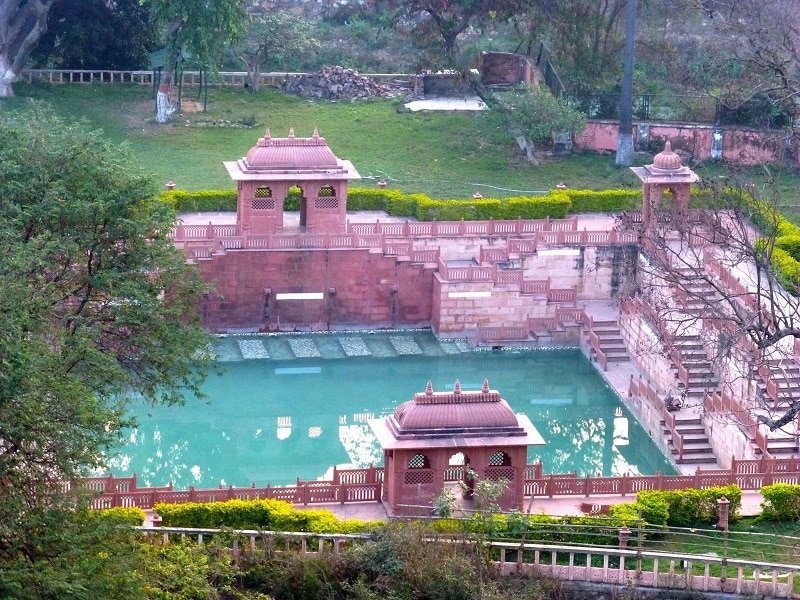
Saurabh Gahoi, Senior VP of Ramee Group of Hotels, said, “The Union Budget 2024 introduces promising developments for the hospitality sector. The government’s emphasis on highlighting India’s spiritual heritage is expected to significantly boost international and inbound travel, which is vital for the growth of our industry. By promoting spiritual tourism, the budget aims to attract more visitors and elevate India’s standing on the global tourism map.
“Additionally, the emphasis on creating job opportunities through skill development aligns with our sector’s needs and will contribute to building a talented workforce. These initiatives will not only drive growth in the hospitality sector but also support the expansion of tourism and related industries across the country.”
Sanjay Sethi, CEO and Managing Director of Chalet Hotels Limited, reacted to the budget, saying, “The Finance Minister presented an inclusive budget with a keen eye on enhancing employment, upliftment of the rural economy, and key infrastructure initiatives. At the same time, infrastructure status for tourism and hospitality is a missed opportunity. We were hopeful, as this would have enhanced investments in the industry, leading to greater employment generation and adding to the exchequer’s forex earnings.”
Delighted with a few announcements, Amit Jaiswal, Chief Financial Officer of Royal Orchid Hotels, said, “The emphasis on employment creation is commendable. The elimination of the Angel Tax is an impressive initiative that will undoubtedly facilitate the development of new business and investment opportunities in various sectors and support the nation’s startup ecosystem. We are happy to see the government’s initiative in infrastructure creation for Bihar and Andhra Pradesh; the government’s ambitious plans to develop the Vishnupad Temple Corridor, Mahabodhi Temple Corridor, and revitalization of Rajgir and Nalanda as premier tourist centres will provide significant impetus to the tourism sector as well as foster greater investments and growth opportunities within the hospitality industry.
“At the same time, the government needs to take a well-considered approach to grant the hotel industry comprehensive infrastructure status as it is a substantial source of employment and a valuable contributor to the country’s gross domestic product. The hospitality industry could have benefited from more specific announcements, like rationalising GST to ensure parity in room rates and promote stability in the hospitality sector. We are optimistic that the government will take substantial measures to address these long-impending issues of the industry.”
Pranav Rungta, Co-Founder and Director at Nksha and VP of NRAI, Mumbai, said, “Aligned with the vision for Viksit Bharat during the Amrit Kaal, FM Sitharaman’s Union Budget introduces several key incentives aimed at boosting employment opportunities and enhancing workforce upskilling. Significant announcements for the travel and tourism industry are expected to increase inbound travel, creating opportunities that will positively impact the restaurant sector.
“Finance Minister Nirmala Sitharaman’s focus on establishing skill-based programmes for the hospitality and restaurant industries is a positive step towards enhancing the sector’s contribution and smooth operation. However, while these measures are appreciated, we had hoped for more targeted support for the restaurant industry. Additional initiatives specifically addressing the needs of restaurants and businesses would have been beneficial in fostering further growth and resilience.”

